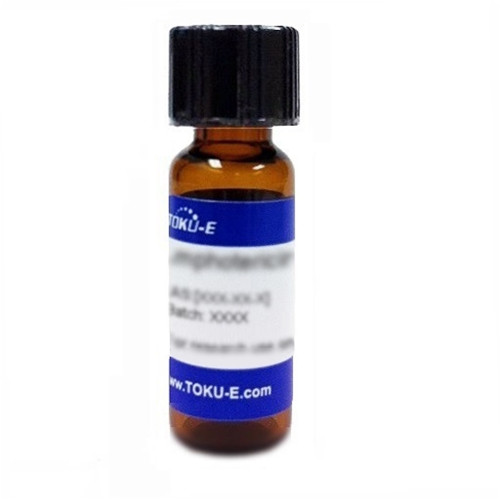Embelin is a benzoquinone derivative from the Japanese Ardisia herb. It is a cell-permeable, small-molecule inhibitor of apoptosis regulator proteins. It is a promising start to a new class of anticancer drugs that target apoptosis regulator proteins. It has also showed potent, broad-spectrum antibacterial activity.
Embelin is soluble in DMSO, and practically insoluble in water.
Embelin is soluble in DMSO, and practically insoluble in water.
| Mechanism of Action | Embelin binds to the BIR3 domain of the "X-linked inhibitor of apoptosis" (XIAP) to induce apoptosis. |
| References | Nikolovska-Coleska, Z., Xu, L., Hu, Z., Tomita, Y., Li, P., Roller, P. P., . . . Wang, S. (2004). Discovery of Embelin as a Cell-Permeable, Small-Molecular Weight Inhibitor of XIAP through Structure-Based Computational Screening of a Traditional Herbal Medicine Three-Dimensional Structure Database. J. Med. Chem. Journal of Medicinal Chemistry, 47(10), 2430-2440. doi:10.1021/jm030420 Dhanjal, J. K., Nigam, N., Sharma, S., Chaudhary, A., Kaul, S. C., Grover, A., & Wadhwa, R. (2014). Embelin inhibits TNF-α converting enzyme and cancer cell metastasis: Molecular dynamics and experimental evidence. BMC Cancer, 14(1). doi:10.1186/1471-2407-14-775 Radhakrishnan, N., Gnanamani, A., & Mandal, A. (2011). A potential antibacterial agent Embelin, a natural benzoquinone extracted from Embelia ribes. Biology and Medicine, 3(2), 1-7. Retrieved from http://www.biolmedonline.com/Articles/MAASCON-1/Vol3_2_1-7.pdf |



